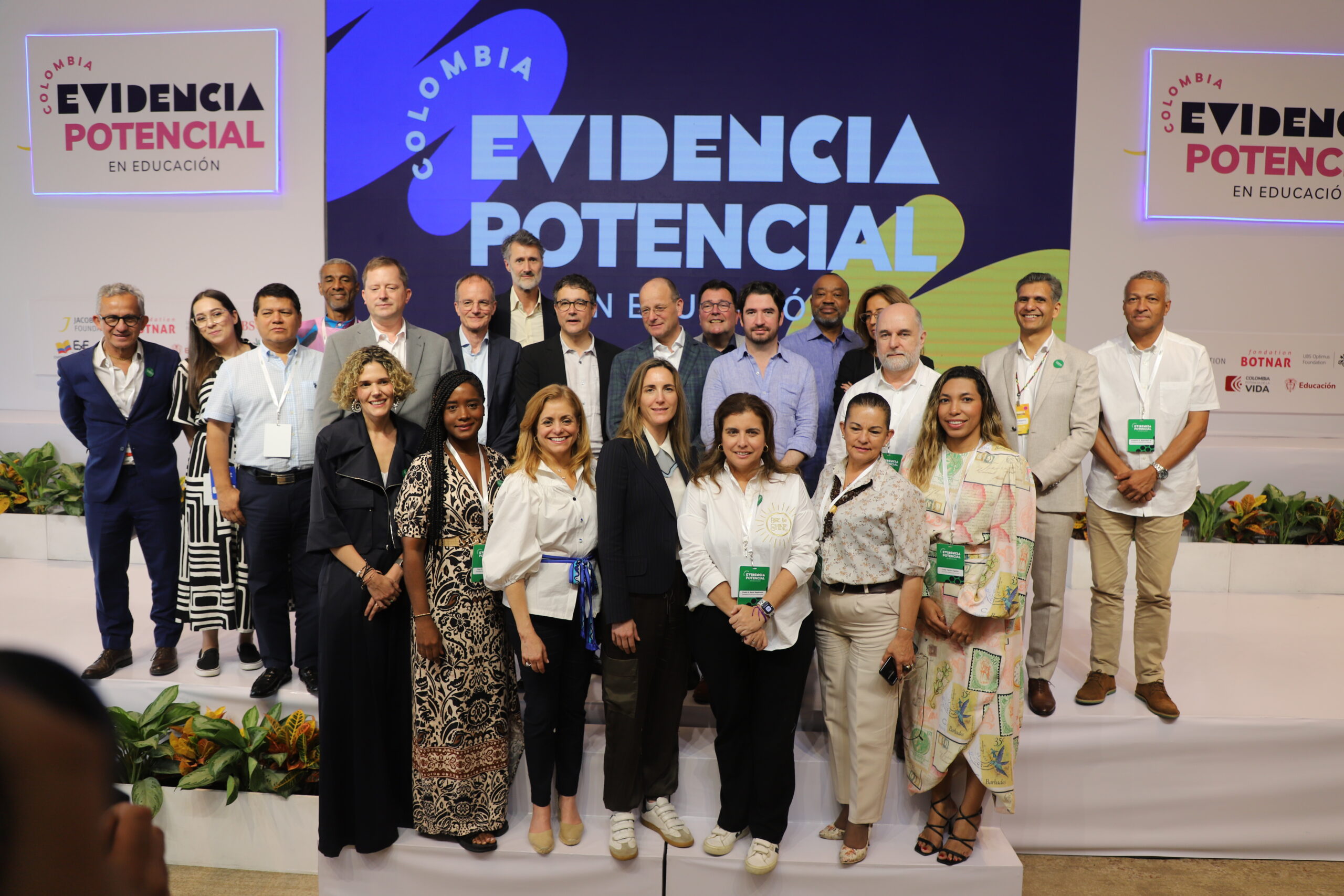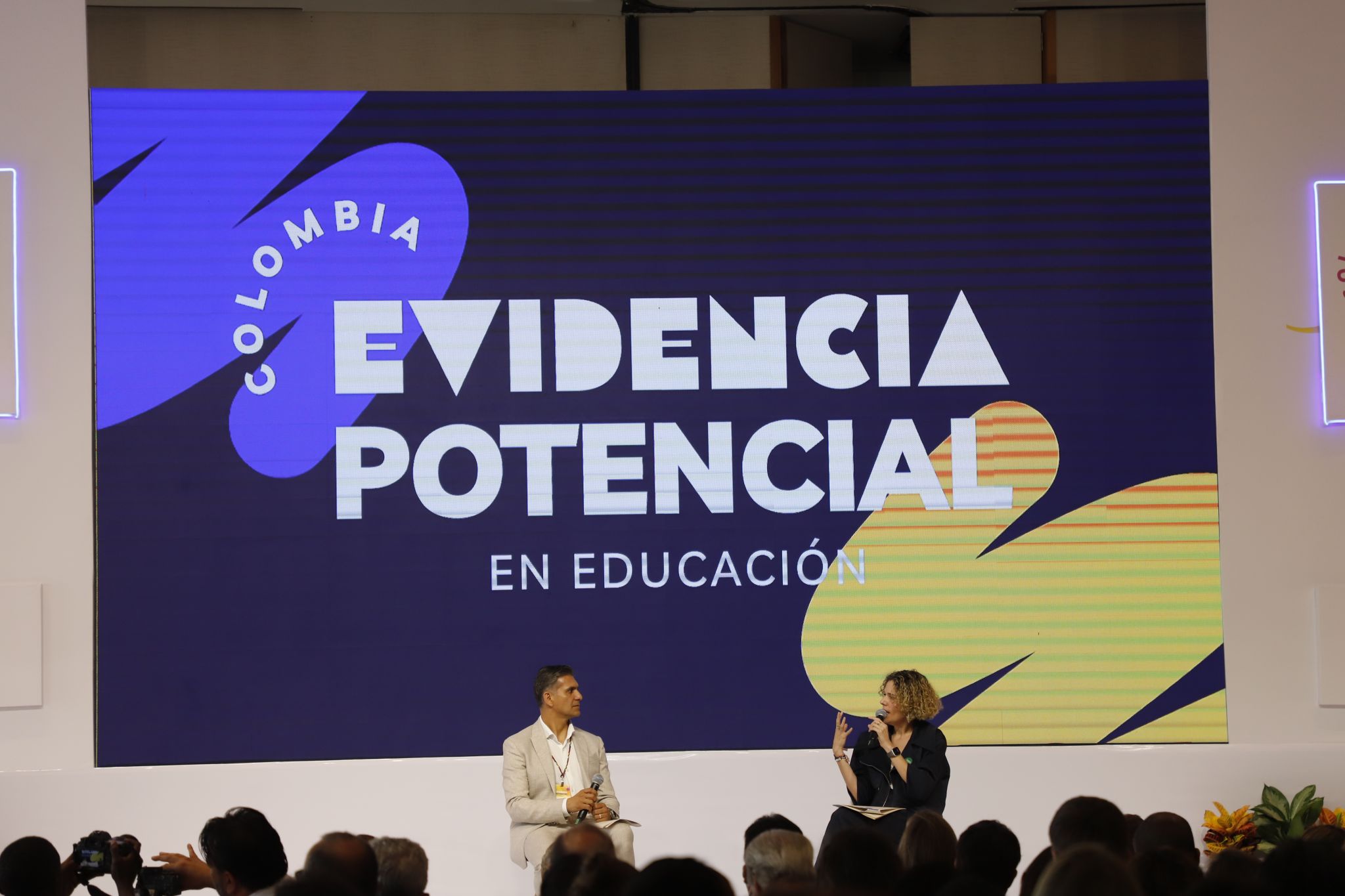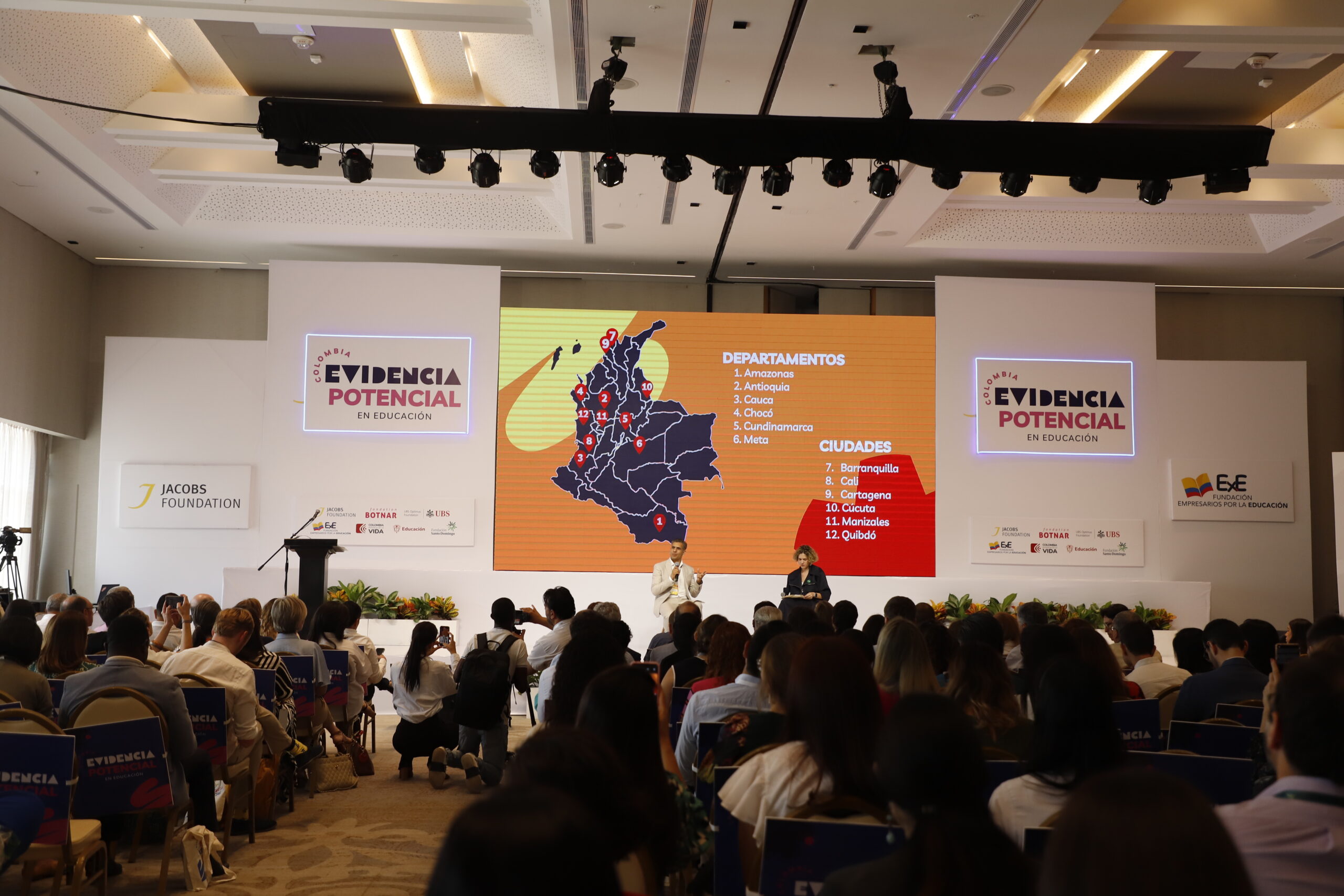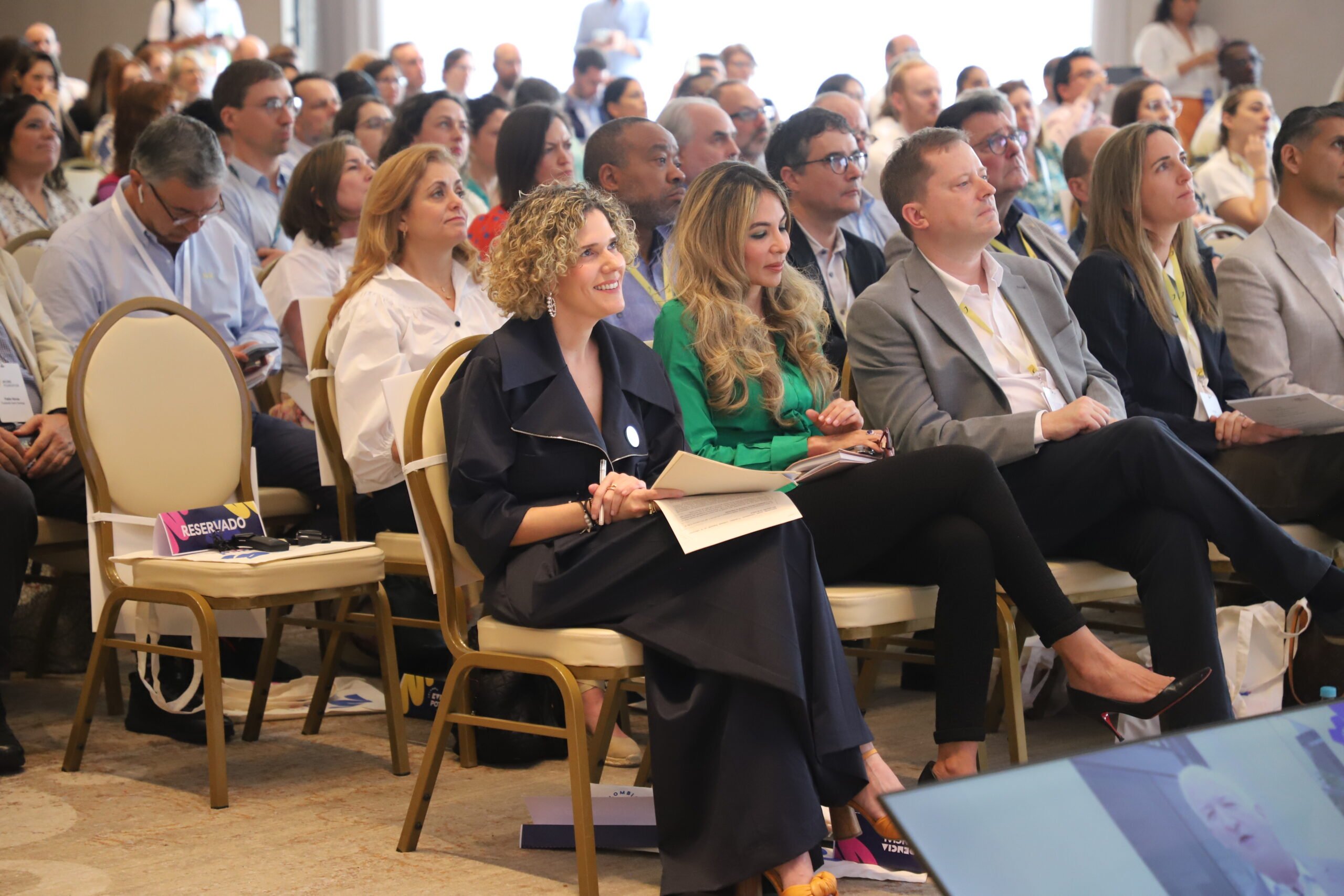Share Content
Article Link Copied
Convening researchers and practitioners to ignite collaboration
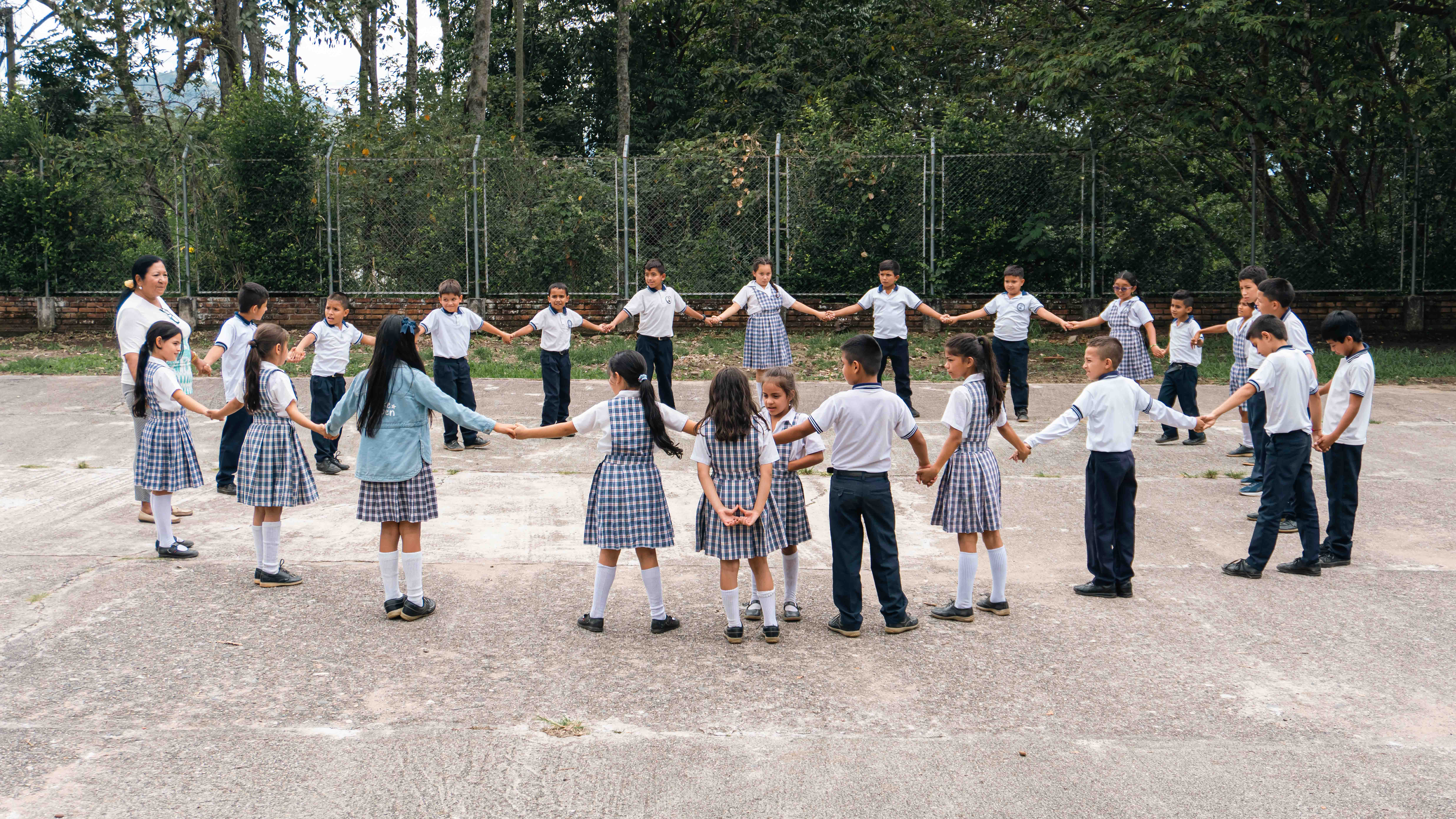
Gaining insights into the impact of our work
Although Colombia is a middle-income country with a strong education ecosystem, there are large learning gaps in foundational skills and socioemotional learning, which were exacerbated by the COVID-19 pandemic. To explore ways to overcome these challenges, many of our team members, alongside our Board of Trustees, recently visited Colombia and gained new insights into the impact of our work at the country level. We were joined by Jacobs Foundation Research Fellows, as well as participants in our School Action Learning Exchange (SALEX) program to exchange ideas and explore new ways to collaborate.
The Jacobs Foundation believes that evidence should be at the heart of policy and practice, providing quality education for every child. Our work supports the entire journey of evidence—from its generation supporting excellence in research through several different approaches, including the Research Fellowship, to its use by schools through programs such as the School Action Learning Exchange (SALEX). We also support the integration of sustainable systemic change in Colombia’s education system and beyond, as demonstrated by the launch of our newest program, Colombia Evidencia Potencial en Educación (CEPE).
Supporting high-quality research and collaboration
Academic research collaboration fosters resource sharing and problem-solving, benefitting both the academic community and wider societies. In Colombia, the event titled Evidence in Practice brought together the Jacobs Foundation Research Fellows and SALEX members to exchange ideas across disciplines and inspire new partnerships in Colombia, all with the aim of ensuring quality research is at the heart of education development in the country.

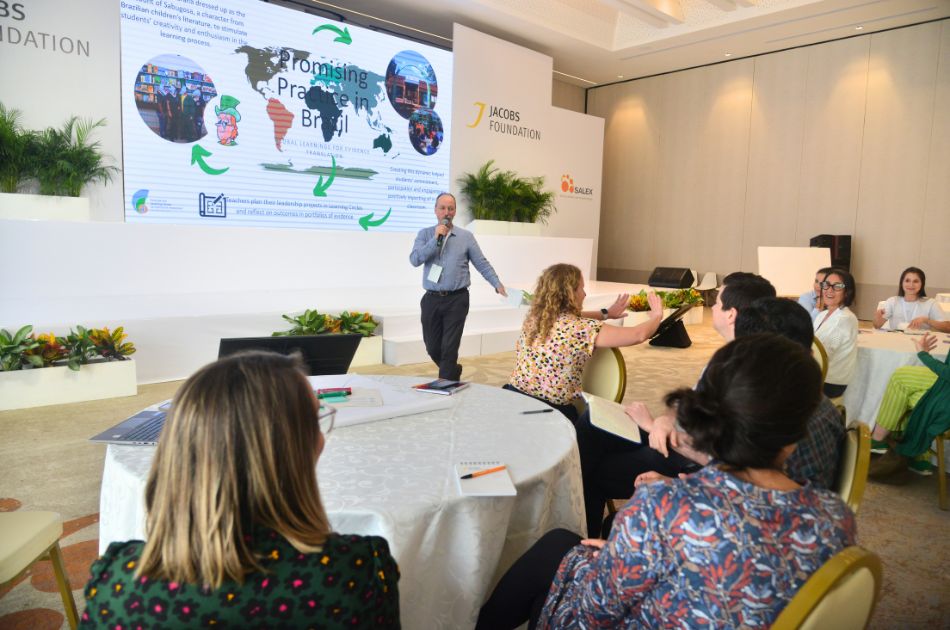
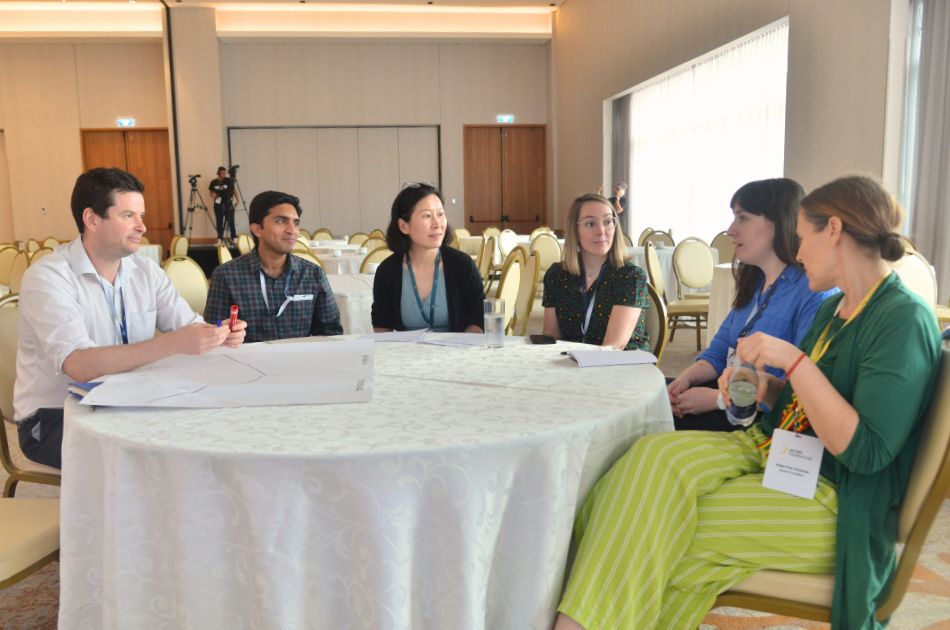

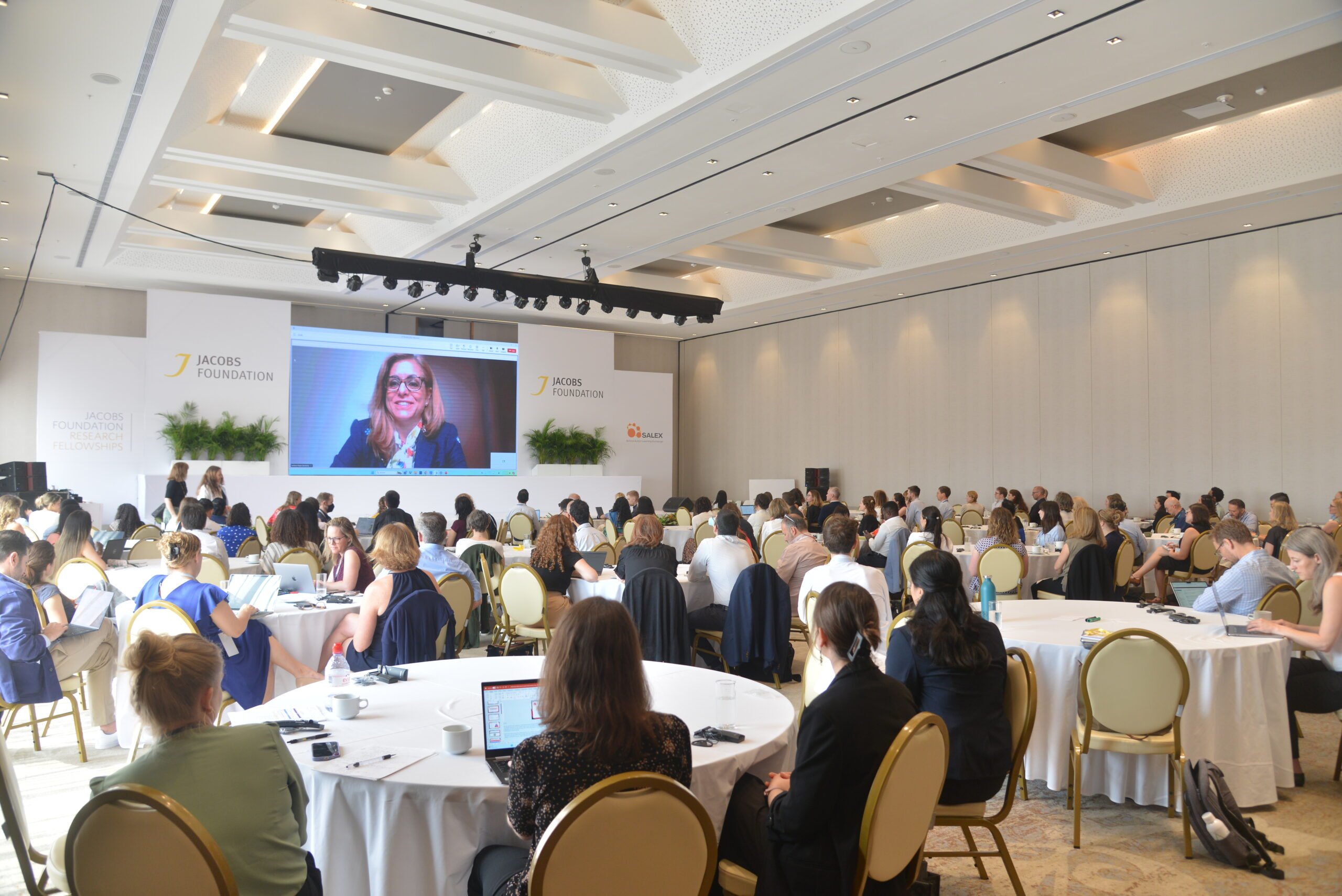
DSC 8291
Seeing evidence in action
The Jacobs Foundation’s Board of Trustees visited Colombia last week, coinciding with the launch of CEPE, to participate in the launch activities and engage with local country partners, including government leaders, school-level practitioners, and communities leading education transformation in the country. Alongside EdLab and Co-Funder representatives, the Board visited two of our partner schools – the Institution Hernando Durán Dussán in Bogota and the León de Greiff School in Manizales. This provided an opportunity for members of CEPE’s Community of Change to share their thoughts on how the connection between policy and practice plays out in the classroom. In Manizales, they visited schools who are supported by Fundacion Luker, a Jacobs Foundation Best Practice Prize recipient in 2022.
“One of the most exciting visits was to the local community in Manizales, where schools are implementing evidence-based programs with support from Fundacion Luker to improve literacy, numeracy, and reduce dropout rates among students. This community is one of the Communities of Change, part of the newly launched Colombia Potential Evidence in Education (CEPE) program, which is leading the way in supporting quality education across the country. This was an opportunity to explore how community-led change can be grounded in evidence on what works best for children’s learning and implemented effectively with impact on learning outcomes. Thank you to ExE, Fundacion Luker, and the many other community partners who made this visit possible.”
Donika Dimovska, Chief Knowledge Officer



Inspiring systemic change
Our work in Colombia is just one example of how the Jacobs Foundation seeks to ignite ambition and inspire systemic change across the education landscape. By bringing together over 36 Research Fellows Alumni, 26 current Research Fellows, 21 SALEX members, and more than 20 EdLab representatives, we reinforced the importance of placing evidence at the heart of education policy and practice. Through supporting researchers and school aggregators and facilitating collaboration, we aim to ensure that impactful research is at the heart of education policy and practice. By supporting the entire journey of evidence—from its generation in evidence to its use by schools and its integration into policy and the education system – Jacobs Foundation works to inspire others across the education sector to drive sustainable systemic change by providing programmatic examples that can be scaled up and contextualized for other education systems worldwide.
Our new program: Colombia Evidencia Potencial en Educación (CEPE)
Our time in Colombia culminated on March 22nd in Barranquilla with the launch of our new program, Colombia Evidencia Potencial en Educación (CEPE). The program weaves together three threads to ensure teaching and learning practices, environments, and experiences are based on evidence and collaboration, with the ultimate goal of improving overall learning outcomes for all children across Colombia.
- Communities of Change: To help strengthen the education ecosystem at the regional level, we have selected 12 territories, including Barranquilla and Cali, which will work to develop efficient, relevant, and scalable educational policies to improve local and national learning.
- EdLabs: To ensure that evidence is generated and translated into knowledge, we are supporting a coalition of public and private organizations, universities, and research centers that will enhance holistic learning among children in Colombia.
- Co-Funding Mechanism: We are proud to be an active funder which works closely with grantees to achieve the maximum possible impact. We know that achieving lasting and sustainable systemic change requires substantial resources and financial support. We have, therefore, worked collaboratively with the Colombian government, philanthropic organizations, and industry funders to create an innovative Co-Funding Mechanism to build a lasting, scalable funding model. This will be the source of funding for the Communities of Change and the Evidence Lab in Colombia.
We hope that CEPE will serve as a model for the transformation of education systems. One that can be scaled up and applied to other education systems around the world.
